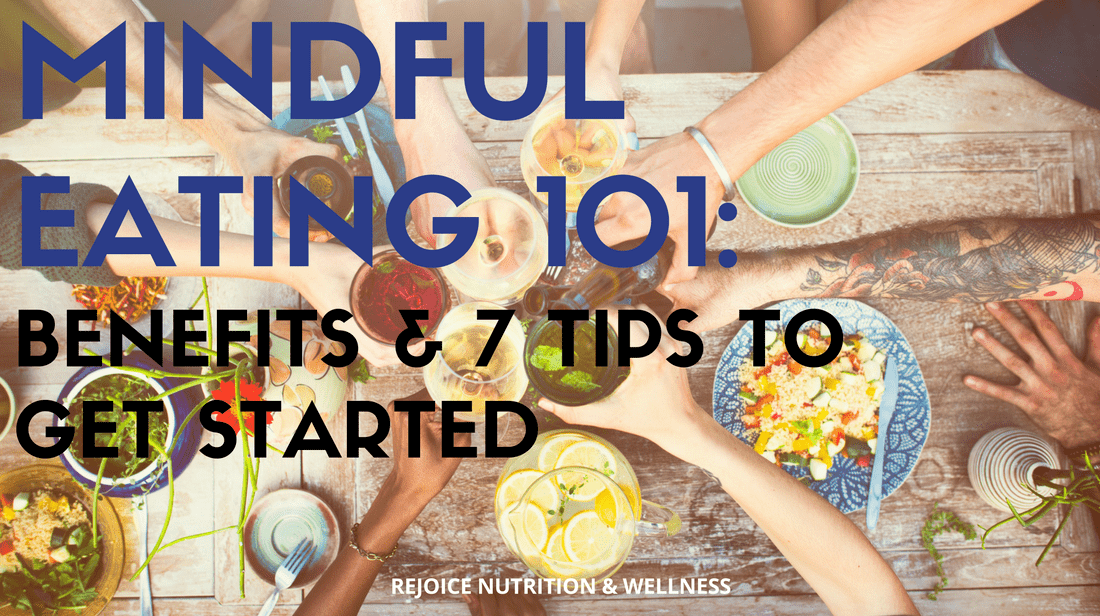Today, few people express they take the time to sit and enjoy what they are eating. 24- hour lifestyles are spent on the run at work, time in traffic, transporting children to their scheduled activities, and the little resting time is spent in front of the computer or TV screen. Eating has been relegated to a mundane chore that can be done while driving, working, watching TV and so on. Few people engage in Mindful Eating.
What is Mindful Eating?
Simply put, it is eating with intent and attention. There are two aspects to mindful eating, eating to take care of yourself, and eating to feel the goodness of what you are eating. Mindful eating is eating with minimal distractions.
Many people will readily survive on fast food, drive through meals and snacks. Many will not even remember what they ate for breakfast. The tradition of eating at the dinner table is ritual forgotten by many families. Breakfast is eaten as people are standing ready to rush out for the day, while supper will be taken in front of the TV with family members barely noticing what they are tasting. This eating disrupts the rest and digestive processes of the body.
Rest and digest
The human body’s self-care is built with two systems, the sympathetic system, and the parasympathetic system. The former is responsible for the flight or fight response that the body needs to face danger. This includes higher blood flow to the muscles and heightened sensory stimulation. The parasympathetic system is designed to make the body relax and repair. It involves optimizing digestion and balancing the body’s chemical reactions.
Constant daily pressures have led to people living in the flight or fight mode perpetually. Deadlines at work, harassment in traffic, financial pressures, family quarrels and so on are some of the modern challenges that induce some form of flight or fight response. This slow, nagging and constant stress disrupts the rest and digests process.
Distractions like the TV or work make the eater get through the food as quickly as possible. The eater bites larger chunks of food and chews less thoroughly putting more pressure on the gastrointestinal system as a whole. Bloating, gas, indigestion can be seen most commonly but long-term digestion larger chunks can lead to wear and tear on the stomach and more chronic digestion and intestinal concerns.
 Benefits of Mindful Eating
Benefits of Mindful Eating
By being mindful of what you eat, you change your way of thinking about food. You will not look at eating as a way of managing your stress or as a distraction.
There is better emotional management with proper eating habits.
Stopping to rest, eat and digest food gives the body time to repair physically and balance out stress and relaxation hormones.
You develop better eating timing. You will know when to eat and when to stop eating because you are in-tune to your body’s natural signals you have had enough. This avoids common indigestion problems and discomfort, as well as overeating.
You will have better health as your body uses the energy to easily assimilate the nutrients instead of compensating for the digestion that should have occurred through mastication (chewing of your food).
You will have better health as you can address your body’s nutritional needs. Food is essential in developing the body’s immunity against common ailments.
Eating willfully while looking forward to enjoying food will make you more deliberate in what you eat. You will take more time to go through menus and recipes to experiment with different foods, textures, and tastes for pleasure. Taking time to connect with all your senses while you eat can help you reconnect with the whole experience of taking care of yourself nutritionally.
How to Incorporate Mindful Eating?
Eat in a calm environment (try not to eat in your car, sit at the dinner table vs. the couch)
Chew your food. When you slow down you can be conscious of your chewing which can reduce indigestion and gastrointestinal issues. The idea of how many times you should chew your food varies from source to source but about 30 times per bite is the suggested average.
Take breaks in between bites. Put down the utensil while you are chewing.
Choose your dinner conversation, try and keep only positive topics around the dinner table. Leave finance or the “To Do List” conversations separate from when you are eating to help your body enter a rest and digest (parasympathetic stage).
Eat in silence. Don’t feel the need to talk the entire time, really allow your body to enter a calm and relaxed state.
Eat with gratitude. When the abundance of food is advertised and in our faces at every turn, it is easy to forget the many people globally that go without. Pause, reflect, and a take a moment before eating to show gratitude for the food on your plate and the work it took to prepare it.
Enjoy your meal! Get back to having a great relationship with food. Taste; enjoy each bite to enhance pleasure in our day.
Each person’s eating habits are unique based on their lifestyle, preferences, culture, and daily routines. Having a discussion with a nutrition practitioner can also go a long way to improving your eating habits. Send me a message on my Contact Page or look at our Shop Page to get starting on creating a food plan that will ensure you enjoy food while getting the maximum benefits from it.
References
- http://www.thecenterformindfuleating.org/Principles-Mindful-Eating
- http://www.huffingtonpost.com/2013/11/12/mindful-eating-tips_n_3941528.html
- https://authoritynutrition.com/mindful-eating-guide/


